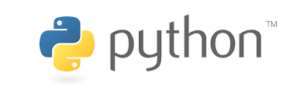Here we will learn the essential information on Python. So let’s start, one question that’s always raised in everyone’s mind before learning a new thing is what basically it is? So let me answer your question.
What is Python?
Python is a high level, object-oriented programming language. It was developed in 1991 by Guido Van Rossum. Its syntax is analogous to the English Language which is why it enhances code readability. Python supports modules and packages, which inspires program modularity and code reuse. The Python interpreter and therefore the extensive standard library are available in source or binary form for free of charge for all major platforms and are often freely distributed. Often, programmers fall soft on with Python due to the increased productivity it provides. Since there’s no compilation step, the edit-test-debug cycle is incredibly fast.
Why Python?
You’d wonder why to use Python anyways, let me assist you for understanding the use of keywords within the formal definition of Python.
❏ High Level
Python derives components from the language that we humans use to communicate with one another. This makes it easier for anyone to undertake and relate what exactly might be happening without the burden of browsing plenty of machine language.
❏ Interpreted
Python codes are compiled line-by-line which makes debugging errors much easier and efficient. But this comes at a price because it is far slower than other programming languages.
❏ Easy Syntax
Python makes use of indentations rather than braces to differentiate what blocks of code come under which class or function. This makes the code look well distributed and makes it easy for anyone to read it.
❏ Dynamic Semantics
If you’re an old fashioned coder, you’d know that before using anything, you would wish to initialize it. It does all of this dynamically.
Where is it used?
After understanding what is python and why it should be used, you’d be surprised after knowing what you can do after mastering it. Well, the list goes on and on, for instance
➔ Creating web applications with Python Frameworks like Django and Flask
➔ Can be used to easily store files on the database.
➔ You can create workflows for the software that you simply are performing on.
➔ Ease of doing Scientific, Analytic and sophisticated calculations.
➔ You can create software much quicker with Python, which is prepared for deployment.
You’ll have a very good career with Python as your go-to language for solving problems. Let me name a couple of the titles that you simply can pursue.
❏ Data Scientist:- A knowledge Scientist is someone who cracks complex problems that relate to the sector of math, statistics and brings around an answer to those problems in a logical manner.
❏ Software Engineer:- Software engineers design, develop, test, and maintain software applications that they create for his or her clients consistent with the requirements.
❏ Web Developer:- Web developers create web applications to serve their users using the client-server model. There are applications like information sharing, social network platforms, entertainment which are just a couple of to call.
I hope you’ll get impressed by the features of Python. So let’s start coding within the next blog. If you’ve got any questions regarding this blog, please let me know within the comments.


